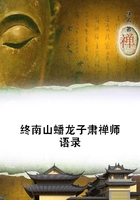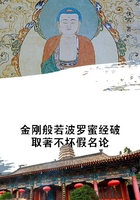MANNING'S appointment filled his opponents with alarm. Wrath and vengeance seemed to be hanging over them; what might not be expected from the formidable enemy against whom they had struggled for so long, and who now stood among them armed with archiepiscopal powers and invested with the special confidence of Rome? Great was their amazement, great was their relief, when they found that their dreaded master breathed nothing but kindness, gentleness, and conciliation. The old scores, they found, were not to be paid off, but to be wiped out. The new archbishop poured forth upon every side all the tact, all the courtesy, all the dignified graces of a Christian magnanimity. It was impossible to withstand such treatment. Bishops who had spent years in thwarting him became his devoted adherents; even the Chapter of Westminster forgot its hatred. Monsignor Talbot was extremely surprised. 'Your greatest enemies have entirely come round,' he wrote. 'I received the other day a panegyric of you from Searle. This change of feeling I cannot attribute to anything but the Holy Ghost.' Monsignor Talbot was very fond of the Holy Ghost; but, so far, at any rate as Searle was concerned, there was another explanation. Manning, instead of dismissing Searle from his position of 'oeconomus' in the episcopal household, had kept him on--at an increased salary; and the poor man, who had not scrupled in the days of his pride to call Manning a thief, was now duly grateful.
As to Dr. Errington, he gave an example of humility and submission by at once withdrawing into a complete obscurity. For years the Archbishop of Trebizond, the ejected heir to the See of Westminster, laboured as a parish priest in the Isle of Man. He nursed no resentment in his heart, and, after a long and edifying life of peace and silence, he died in 1886, a professor of theology at Clifton.
It might be supposed that Manning could now feel that his triumph was complete. His position was secure; his power was absolute; his prestige was daily growing. Yet there was something that irked him still. As he cast his eyes over the Roman Catholic community in England, he was aware of one figure which, by virtue of a peculiar eminence, seemed to challenge the supremacy of his own. That figure was Newman's.
Since his conversion, Newman's life had been a long series of misfortunes and disappointments. When he had left the Church of England, he was its most distinguished, its most revered member, whose words, however strange, were listened to with profound attention, and whose opinions, however dubious, were followed in all their fluctuations with an eager and indeed a trembling respect. He entered the Church of Rome, and found himself forthwith an unimportant man. He was received at the Papal Court with a politeness which only faintly concealed a total lack of interest and understanding. His delicate mind, with its refinements, its hesitations, its complexities--his soft, spectacled, Oxford manner, with its half-effeminate diffidence-such things were ill calculated to impress a throng of busy Cardinals and Bishops, whose days were spent amid the practical details of ecclesiastical organisation, the long-drawn involutions of papal diplomacy, and the delicious bickerings of personal intrigue. And when, at last, he did succeed in making some impression upon these surroundings, it was no better; it was worse. An uneasy suspicion gradually arose; it began to dawn upon the Roman authorities that Dr. Newman was a man of ideas. Was it possible that Dr. Newman did not understand that ideas in Rome were, to say the least of it, out of place? Apparently, he did not-- nor was that all; not content with having ideas, he positively seemed anxious to spread them. When that was known, the politeness in high places was seen to be wearing decidedly thin. His Holiness, who on Newman's arrival had graciously expressed the wish to see him 'again and again', now, apparently, was constantly engaged. At first Newman supposed that the growing coolness was the result of misapprehension; his Italian was faulty, Latin was not spoken at Rome, his writings had only appeared in garbled translations. And even Englishmen had sometimes found his arguments difficult to follow. He therefore determined to take the utmost care to make his views quite clear; his opinions upon religious probability, his distinction between demonstrative and circumstantial evidence, his theory of the development of doctrine and the aspects of ideas--these and many other matters, upon which he had written so much, he would now explain in the simplest language. He would show that there was nothing dangerous in what he held, that there was a passage in De Lugo which supported him-- that Perrone, by maintaining that the Immaculate Conception could be defined, had implicitly admitted one of his main positions, and that his language about Faith had been confused, quite erroneously, with the fideism of M. Bautain.
Cardinal Barnabo, Cardinal Reisach, Cardinal Antonelli, looked at him with their shrewd eyes and hard faces, while he poured into their ears which, as he had already noticed with distress, were large and not too clean--his careful disquisitions; but, it was all in vain-- they had clearly never read De Lugo or Perrone, and as for M. Bautain, they had never heard of him. Newman, in despair, fell back upon St. Thomas Aquinas; but, to his horror, he observed that St. Thomas himself did not mean very much to the Cardinals.
With a sinking heart, he realised at last the painful truth: it was not the nature of his views, it was his having views at all, that was objectionable. He had hoped to devote the rest of his life to the teaching of Theology; but what sort of Theology could he teach which would be acceptable to such superiors? He left Rome, and settled down in Birmingham as the head of a small community of Oratorians. He did not complain; it was God's will; it was better so. He would watch and pray.















